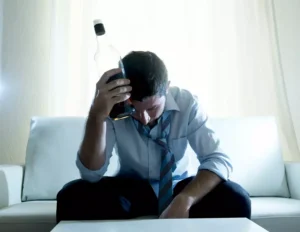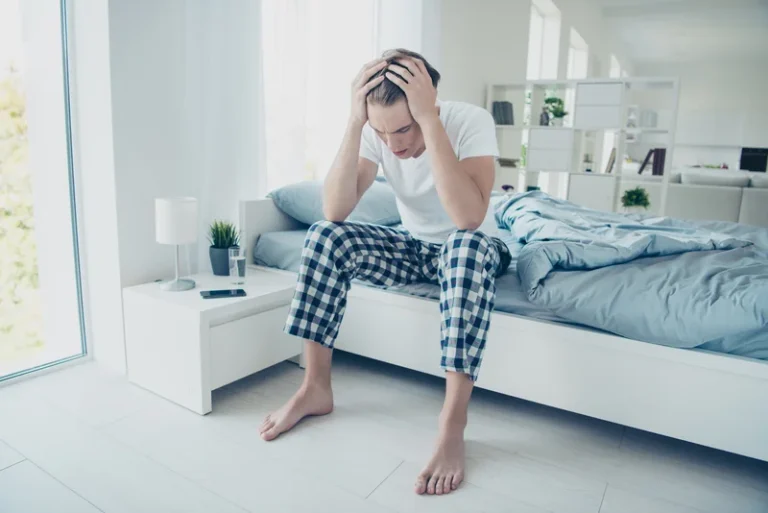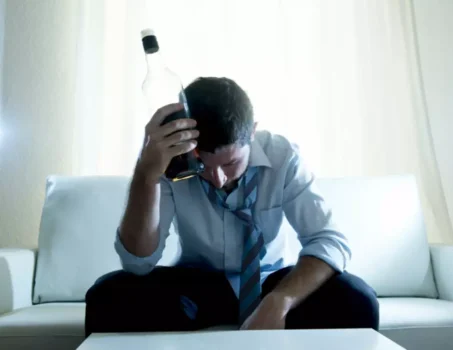
At the end of four to six months of treatment with the Sinclair Method, 80 percent of people who had been overusing alcohol were either drinking moderately or abstaining entirely. With the Sinclair Method, people only take Revia or Vivitrol before drinking and never otherwise. Revia and Vivitrol are not like other anti-alcohol drugs that cause intense sickness and hangover sensations when taken with alcohol. In 2001, David Sinclair, PhD, a researcher in Finland claimed an 80 percent cure rate for alcohol dependence when anti-alcohol drugs Revia or Vivitrol are prescribed according to his Sinclair Method. Dr. Sinclair’s research has been published in the peer-reviewed journals Alcohol and Alcoholism and the Journal of Clinical Psychopharmacology. Hosted by therapist Amy Morin, LCSW, this episode of The Verywell Mind Podcast shares strategies for coping with alcohol cravings and other addictions, featuring addiction specialist John Umhau, MD.
Support Our Mission
Numerous studies support its safety and effectiveness, according to a 2015 review published in the journal CNS Drugs. Doctors can legally prescribe the drug to reduce craving for alcohol, but the FDA has not approved it for alcoholism. Medication-Assisted Treatment (MAT) is a comprehensive approach to treating alcohol use disorder (AUD) that combines FDA-approved medications with counseling and behavioral therapies. MAT addresses the complex needs of individuals by targeting both the physical and psychological aspects of addiction, providing a holistic treatment plan for long-term recovery.

Do the Medications Make You Sick When You Drink?
- A nationwide survey by the National Institutes of Health found that 28 percent of adults in the U.S. are heavy drinkers or drink more than is recommended.
- There’s usually no place more comfortable, controllable, and safe-feeling than a person’s home.
- Naltrexone was first developed in 1963 to treat addiction to opioids.
- Benzodiazepines are prescription drugs used to treat anxiety, insomnia and seizures.
“All addictive drugs increase dopamine there. That’s a common thing.” Now imagine you’re a beer lover and you take a big gulp of a cold IPA on a hot day. It also triggers a dopamine spike in the motivation center of the brain — just like the cookie. Turns out, these drugs (as well as the GLP-1 hormone) don’t just work on blood sugar. “They also work in your brain,” says Dr. Lorenzo Leggio, who’s the clinical director of the National Institute of Drug Abuse. Paul Grayson, Ozempic’s effect on alcohol came as a big surprise.
Products & Services
- This drug, called exenatide, isn’t as potent as semaglutide (Ozempic) at inducing weight-loss or penetrating inside the brain.
- As your cravings for alcohol become more manageable, you may decide to try reintroducing situations that previously triggered your temptation to drink.
- Researchers have found that taking it for longer than 3 months is the most effective treatment.
- Ifenprodil tartrate is available in France, Korea, Philippines, and Japan.
- But studies have found that in animals and people, GLP-1 drugs reduce the release of dopamine in this region when you eat something sweet and fatty, or when you consume alcohol.
- But naltrexone is currently available (M. C. Huang, personal communication, 2018).
Our neurological pathways and memories are conditioned to respond with cravings, but our brains will continue to rewire themselves with a little planning, patience and time. Recovery can take a long time, so you may need ongoing treatment. An important first step is to learn more about alcohol use disorder and your treatment options. reduce alcohol craving In addition, an extended-release monthly injection form of the medication is marketed under the trade name Vivitrol. Some people have experienced severe reactions, there were even reports of deaths due to disulfiram. Today disulfiram is prescribed in smaller quantities to treat AUD.
Much like when Pavlov’s dogs were presented with food when a bell was rung, these dogs became conditioned to salivate at the sound of the bell alone. However, when these dogs continued to be presented with the ringing bell and no food, the salivating stopped. In 1982, the French company Laboratoires Meram developed acamprosate for the treatment of alcohol dependence. It was tested for safety and efficacy from 1982 until 1988 when it was authorized for use by the French government to treat alcoholism.

Drugs & Supplements
The latest research indicates that alcohol consumption increases risks for more than 200 health problems, including heart disease, liver disease, depression, anxiety, stroke and cancer. And experts stress that those increased risks are incurred at every level of consumption — from a drink or two a day to heavier habits. When you have alcohol use disorder, just thinking about alcohol triggers a pleasurable response in the brain. Some of these medications have been around for decades, but fewer than 10% of the people who could benefit from them use them. “You don’t have commercials talking about these drugs,” says Stephen Holt, MD, who co-directs the Addiction Recovery Clinic at Yale-New Haven Hospital St. Raphael Campus in Connecticut.
How we reviewed this article:

People who have become alcohol-dependent often experience cravings when trying to stop drinking, making it harder to quit. The good news, however, is that there are medications that may help manage the urge for alcohol, which can aid in the recovery from alcohol use disorder (AUD). There are some medications that may help some people reduce or stop their obsessive drinking.

When to contact a doctor about drinking
- Even though naltrexone blocks away the intense “high” from opioids or alcohol, it does not prevent good feelings that come from other naturally pleasurable activities.
- The drug seems to curb the euphoric and sedative effects of opiates in the brain.
- “The drug talks with our brain and says, ‘We’ve had enough food here. So let’s slow down. Let’s have less appetite, let’s have less food. Less alcohol,” says NIDA’s Leggio.
- The program is covered by many insurance plans and can be done 100 percent from your smartphone or personal device for your convenience.
- But he sank into a deep depression after several deaths in his family, and sought “solace in the bottle,” he says.
Acamprosate is believed to work by restoring balance to certain neurotransmitters in the brain that are disrupted by long-term alcohol overuse. These thoughts, feelings, sensations, and beliefs are not necessarily negative. You may drink to avoid certain feelings, for instance, but you also may drink to enhance certain feelings. If certain environments, scenarios and places tempt you to drink, the simplest and most effective approach may be to avoid them, at least temporarily. Substance Abuse and Mental Health Services Administration (SAMHSA).
A variety of factors can play into people’s drinking patterns, including genetics, depression, anxiety and stress. And stigma often keeps people who are affected by alcohol from seeking help, according to the National Institute on Alcohol Abuse and Alcoholism (NIAAA). That’s bad news when it comes to the health of older adults.
